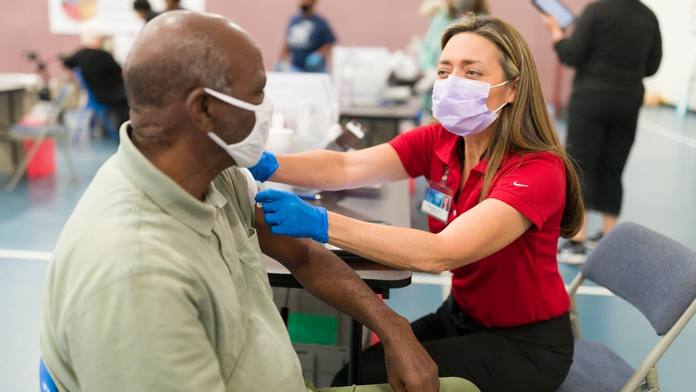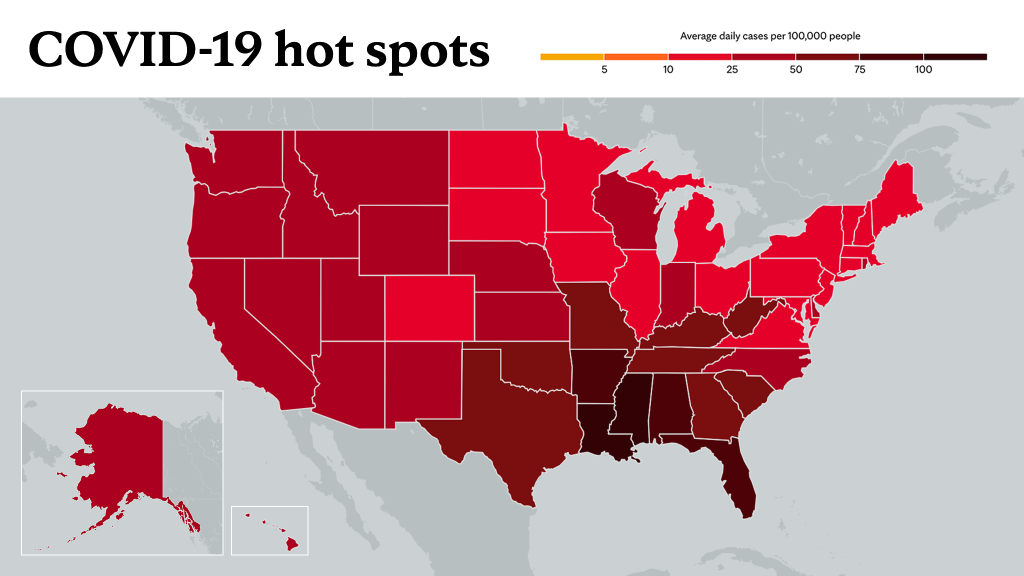
Amid reports of waning COVID-19 immunity, the Food and Drug Administration (FDA) is expected to officially approve a third dose of messengerRNA vaccines for the general public. Moderna and Pfizer are mRNA vaccines.
The FDA has already approved a third COVID-19 vaccine dose for those who have compromised immune systems, as part of their primary vaccine series. That third vaccine is not considered a booster.
However, Mayo Clinic experts say the pending FDA approval for a booster vaccine does not mean the general public should go out and get a third dose of vaccine, whenever they think they need it. The timing for a booster is important and designed to give extended immunity protection. Sooner is not necessarily better and these experts have other concerns.
"We're certainly aware of news reports that people, on their own, are going out and getting a third dose," says Dr. Gregory Poland, an infectious diseases expert and head of Mayo Clinic's Vaccine Research Group. "I would urge caution about that. We don't have a lot of data on that and we want to do this in a manner that offers the most benefit and the least risk."
Dr. Melanie Swift, co-chair of the Mayo Clinic COVID-19 Vaccine Allocation and Distribution Work Group, agrees.
"There are some things we don't know about that," says Dr. Swift. "One is that they could develop more side effects and are at more risk of adverse reactions. We don't think so, but we would have to actually study that or follow the population to find out."
Watch: Dr. Swift discusses the issue of getting a third COVID-19 vaccine too soon.
Journalists: Broadcast-quality sound bites with Dr. Swift are available in the downloads at the end of the post. Please courtesy: "Melanie Swift, M.D./COVID-19 Vaccine Allocation and Distribution/Mayo Clinic."
She adds, "Secondly, while we have an adequate vaccine supply to meet this current booster recommendation we don't have a limitless supply of vaccine," says Dr. Swift. She explains that boosters are anticipated for the population that's already been vaccinated, but vaccines to be authorized for children over the coming months need to be anticipated, too.
"We don't want people just going out and getting vaccinated, soaking up the available supply," says Dr. Swift. "If they have a healthy immune system and got their full first series, they should expect to be covered for at least eight months after that series so they don't need to go out and get an early booster.”
"We’re in this unusual situation where we've got a group of people we can't convince to get the first dose, despite all the data," adds Dr. Poland. "And then a group of people where we don't yet have the data that are going out on their own and getting third, fourth and fifth doses. We have no idea what the consequences of that might be yet."
Finally, Drs. Swift and Poland encourage people to follow the science and talk with their health care providers.
Related posts:
- What you need to know about COVID-19 booster shots
- Mayo Clinic Q&A podcast: Breaking down the booster terminology for COVID-19 vaccines
- Why get vaccinated?
___________________________________
For the safety of its patients, staff and visitors, Mayo Clinic has strict masking policies in place. Anyone shown without a mask was either recorded prior to COVID-19 or recorded in a nonpatient care area where social distancing and other safety protocols were followed.
Information in this post was accurate at the time of its posting. Due to the fluid nature of the COVID-19 pandemic, scientific understanding, along with guidelines and recommendations, may have changed since the original publication date.
For more information and all your COVID-19 coverage, go to the Mayo Clinic News Network and mayoclinic.org.
Learn more about tracking COVID-19 and COVID-19 trends.








